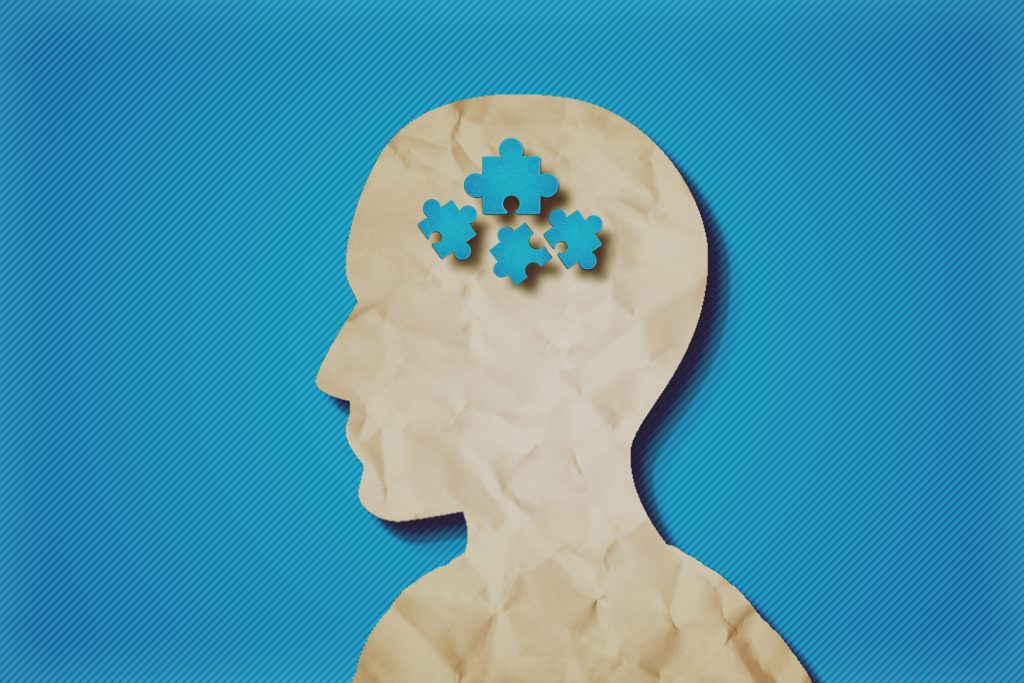“Awareness,” as defined by Dictionary.com, is “concern about and well-informed interest in a particular situation or development.” Perhaps the most important aspect of this definition is “well-informed.” The more you know and understand, the more you can advocate for those who might not be able to advocate for themselves. The only way to create real, substantial change is through awareness.

Mental health wellness can impact you, your family, your colleagues, and your customers, and your understanding impacts how you deal with it. What does mental health wellness mean to you? How aware are you of its implications, impact, and effect on lives?
Thoughts on mental health wellness
The first step in creating mental health wellness for yourself and those around you is understanding what it is. Mental wellness, as a popular term, is still extremely vague. Understanding mental wellness fully relies on an understanding of mental health illness. Once you understand what illness is, its symptoms and causes, you can better grasp what is wellness.
Mental wellness is characterized by thinking, feeling, connecting, and functioning in ways that help us be resilient and to grow and flourish. For most, mental wellness means you experience in a healthy manner:
- Mental: How you think, process, understand, and use information
- Emotion: How you feel, manage, and express your emotions
- Social: How you connect with and grow your relationships with others
- Psychological: How you act or function when putting all these pieces together
Here are some thoughts on what mental health wellness means to people just like you:
- Your mental wellness affects everyone around you, from friends and family to community and workplace.
- You advocate for mental health by being against its stigma and any prejudice.
- You share your own personal experiences, stories, and truths to let others know they’ve not alone.
- You accept and understand the medical nature of illness and that recovery is more than telling someone to “get over it.”
- You understand the importance of talking about mental health without fear and judgment.
- You commit to normalizing mental health and awareness to eliminate the fear people have of mental illness.
How you can boost mental health wellness
First, understand mental health illness symptoms. Be aware of anxiety, depression, OCD, schizophrenia, addictions, suicidal thoughts, and other contributors to mental illness — in both yourself and others. Cultivate a deep understanding and knowledge of mental health so you know what to look for when supporting your own mental health wellness. Anything you can do to raise awareness contributes not only to your own mental wellness but to others as well.

Mental health wellness needs the support of professionals, programs, and medical treatments to ensure mental health illness is treated appropriately. While it’s great to prevent illness, it’s not always possible. To create true wellness programs, we must tackle illness first. Here are ways you can help boost mental health wellness in your community:
- Sign up for a mental health screening. Many communities offer mental health screenings where you can check on your mental health. Or you can find a screening near you here.
- Pay particular attention to mental health in the workplace. Check your mental health through an employee wellness survey or possibly through surveys offered through your employer’s health and wellness program.
- Share information in your community. Post how to take the free mental health screening at your local gym, yoga studio, health food store, and any other venue you feel is appropriate.
- Take time for your own mental health. Don’t overlook your own mental health wellness when advocating for others. Learn how to practice self-care and preserve your mental health.
- Become a connoisseur of mental wellness activities and share your knowledge with others.
What mental health and wellness should mean to all
Your mental health and wellness, as well as everyone else’s, should encompass positive results like:
- Help everyone reach their full potential.
- Teach people how to cope with life’s stresses.
- Show how everyone can make meaningful contributions to family, friends, and their community.
Help family and friends maintain positive mental health
It’s always hard to advise family and friends, especially when it comes to mental health wellness. If you can, offer them the following suggestions.
- Get professional help. Everyone can benefit from a therapist’s input.
- Connect with others. Let them know they’re not alone.
- Stay positive. Spread the good news to everyone.
- Get physically active. Physical activities affect mental health as well as physical.
- Help others. Focusing on others’ needs helps you focus on someone other than yourself.
- Get enough sleep. When not fully rested, we might not make the best decisions.
- Develop coping skills. Stress is a killer. Coping skills help you live longer.

Final thoughts
Mental wellness is more than just about having a mental illness. Mental wellness and mental illness aren’t necessarily on a continuum. One doesn’t lead to or prevent the other. Mental health wellness is nuanced and dynamic; it’s best to think of mental illness and mental wellness as two separate continuums. But once you understand mental health illness, you’re in a better position to understand and proactively work on mental health wellness.






